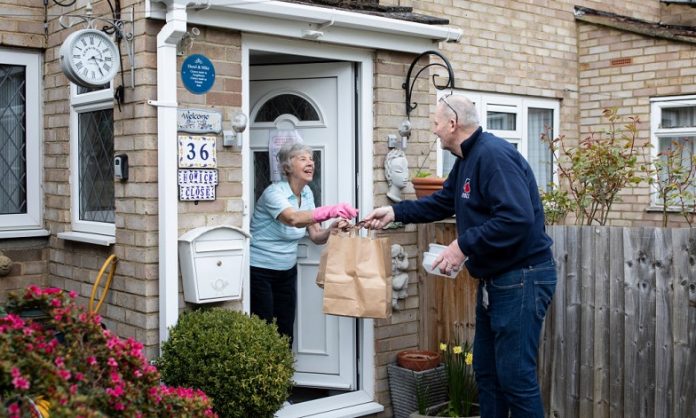A team of academics is to study the impact of volunteers during the Covid-19 pandemic and how volunteers can best be deployed to serve communities and support vulnerable people.
The project, led by the University of Sheffield, brings together experts from the universities of Hull, Sheffield and Leeds to examine how authorities can build on the surge of people volunteering their time in response to the virus.
People have played their part in responding to the pandemic in a variety of ways, from helping to collect shopping and medication for vulnerable residents, to transporting patients home who have been discharged by the NHS.
Other volunteers have helped supermarkets keep up with increased demand for deliveries and collections, and helped transport medical equipment and supplies between hospitals.
The focus of the new research, funded by a £382,000 grant from UK Research and Innovation, is to understand and maximise the effectiveness of some of these volunteer responses.
The 18-month project, Mobilising Volunteers Effectively (MoVE), will use large amounts of data and see the academics work closely with local authorities to examine the changing nature of supply and demand for volunteers across the country.
Dr Erica Ballantyne, Lecturer in Operations and Supply Chain Management at the University of Sheffield’s Management School, said: “This project provides an exciting multi-disciplinary opportunity to explore how volunteers are supporting the supply chain through the provision of local and community-centric initiatives.
“The research seeks to address the logistical challenges around effective deployment of volunteers, in order to optimise the available support for meeting essential needs in food supply, healthcare and wellbeing.”
Dr Fiona Walkley, from Hull University Business School, said: “The research will look at how volunteers have been mobilised to meet the needs both nationally and at a local level, including strategies used by local authorities and their charity partners, and the emergence of micro-volunteering initiatives in communities.
“It will create a UK-wide picture of the mobilisation of volunteers, how needs have been accommodated, and the gaps and stress points in the system.”
Dr Silviya Nikolova, Lecturer in Health Economics at the University of Leeds, said: “We are excited to work together with the Universities of Sheffield and Hull, care organisations, charities and industry to assess volunteer response to changing needs in the community and impact on health and wellbeing during COVID-19.
“Understanding determinants of volunteer response is important to addressing problems in the health and care sectors which have been dramatically affected by the current crisis.”







